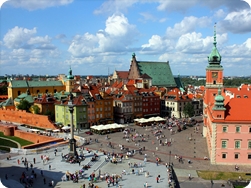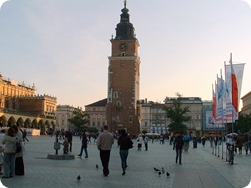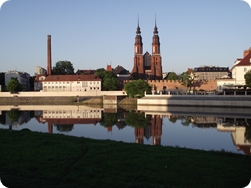
Abraham Kulwieć
Abraham Kulwieć, born in 1509 in Kulvé, died on July 1946 in Kulva. He was a Lithuanian activist of the Reformation, Lutheran propagator, lawyer and theologian. (Linked to the history of the Land of Great Masurian Lakes.)
He was born in a well-known and prosperous Lithuanian noble family. In the years 1528-1537 he studied at the University of Cracow. Interested in the ideas of humanism, he went to further studies to Leuven (Netherlands), where he was influenced by Erasmus of Rotterdam. Convinced of the need to reform Christianity, he went to study at Wittenberg, where Martin Luther and Philip Melanchthon lectured. Then in 1536 he went to Leipzig and Siena, where in 1537 he received a doctorate degree of law.
In 1538 he returned to Lithuania, where he began to publicize the Lutheran Reformation through public readings in Vilnius. Around 1540 he built a school in Vilnius, attended by 60 students. Due to his spreading of the evangelical faith, he was harassed and finally forced to go to Prussia in 1542, where he became a private tutor in Konigsberg.
He was a professor of the University of Albrecht in Konigsberg, (The University of Königsberg, in German: Albertus-Universität Königsberg, was located in Königsberg, East Prussia (now part of Russia and known as Kaliningrad as from 1946). It was founded in 1544 as second Protestant academy after the University of Marburg by Duke Albert of Prussia, and was commonly known as the Albertina). where in 1544 he was the first to receive the chair of the Hebrew and Greek languages. He became the first professor of Greek and also lectured in Hebrew. Paul Speratus describes him as a respected lecturer and respected member of the Prussian Church. On the advice of Speratus Kulwieć, he first translated Lithuanian Lutheran catechism (printed in 1547 in Königsberg) and religious songs. He wrote in Latin the work of Confessio fidei Abr. Culvensis (Confession of Faith, A. Kulwiecia) 1543.
Kulwieć learned of a severe illness, and Prussian prince Albrecht Hohenzollern, through his uncle, King Sigismund I, received his entry permit for Lithuania. At the end of April 1545 his health deteriorated. He died on 6 June 1545 and was buried near his home. He was dedicated to the epitaph of Königsberg Cathedral, which was authored by Johann Hoppe and Christoph Jonas.
Abraham Kulwieć




